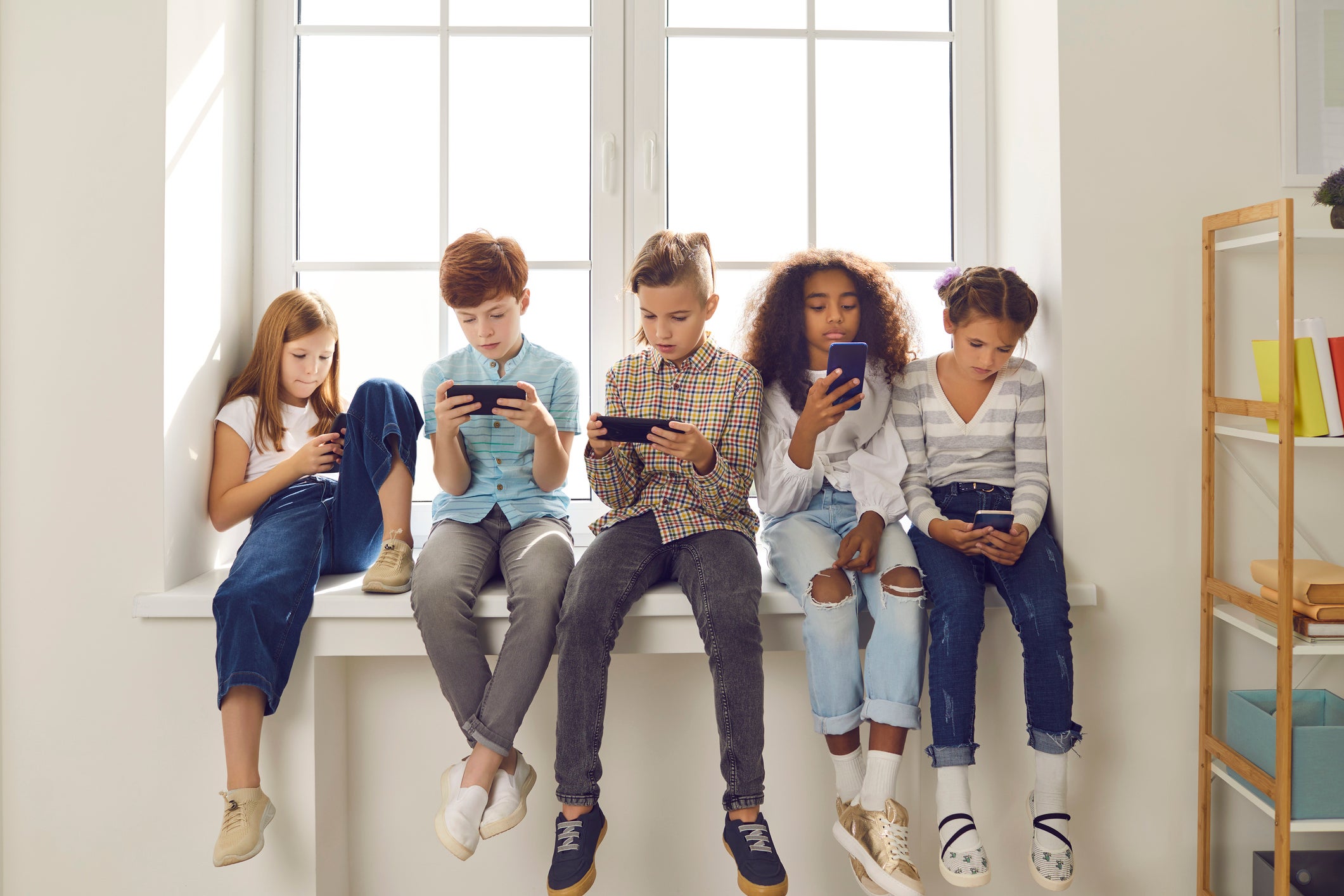I’m a dad of two and I think a smartphone ban is a terrible idea (if you don’t, you’re a hypocrite)
It’s more important than ever that we educate our kids about how to spot ‘fake news’ and disinformation, writes Oliver Keens – and they can’t do that if they’re left in the dark


Today, around 3,000 schools in the UK have had to stop educating children and instead let adults use their buildings as polling stations in which to exercise their democratic right to vote. But what of the democratic rights of children?
It seems almost quaint to consider that they have any – despite the fact that around a fifth of the population, over 14 million people, are under the voting age of 18.
To my mind, nothing says more about how little we value those rights than the concept of a smartphone ban for young people – an idea the government will soon be consulting on. Will they actively seek the views of those it will affect, or will a cabal of very motivated adults drown them out? I suspect the latter.
As a parent of a six-year-old and a nine-year-old, I’ve been bounced into multiple, surprisingly well-organised, WhatsApp groups that are campaigning to ban smartphones. The most notable of these is run by the group Smartphone Free Childhood, which follows the Sunak-approved writings of American psychologist Jonathan Haidt.
I’m surprised not just at the vehemence of its members but at the hypocrisy of adults uniting on phones and social media to prevent their children from having the same privilege. None of these parents are proposing getting rid of their own phones, despite the omnipresent awareness that smartphones can mess with an adult’s life just as much as a child’s.
From a young person’s point of view, the way grown-ups talk about the online world is riddled with disingenuous sanctimony. They’ll hear adults talk endlessly about the dangers of social media, for example, yet see us obsessively using it regardless. Their only contribution is often just to stand there and act as cute, unconsenting content.
Technology secretary Michelle Donelan has floated a possible increase to the lower age limit for social media, from 13 to 16. This would mean that a grown-up could freely upload thousands of pictures of a child during their lifetime to a public Instagram account, yet the child would have no say in the matter. What’s more, the child would be banned from accessing it and from knowing what grown-ups are saying about them online.
How is this remotely fair?
On a moral level, I recoil at anyone prepared to upload a child’s picture to a platform that the child is prohibited from accessing. It’s an affront to a child’s right to privacy, one I’m convinced our kids will call us out on when they finally grasp what Mum or Dad posted in the name of “likes”.
The children of today will be the voters of the future. But how will they form their views once they’re finally enfranchised if they’ve been left in the dark?
The status of the press as the “fourth estate” is a de facto part of our constitution. Yet the sad reality is that without phones, children’s access to media – a right enshrined in Unicef’s Convention on the Rights of the Child – will be restricted or drastically reduced.
How will they learn to differentiate between real news and “fake news” or disinformation quickly and accurately without being able to access verifiable news sources in the same way adults are able to – via a mobile phone?
I urge any campaigner to tell me how a formative mind will discover balanced political discourse, where they will read about the issues and events that shape our political outlook – indeed, how they will be inspired to care about politics at all – without a smartphone.
Many parents know there is a judgemental snootiness when it comes to kids and screen time. It’s not uncommon to encounter a sneering, classist attitude towards those who are seen to “indulge” their children with screens. Whether you like it or not, you have to respect the decisions of parents – and that applies to the question of smartphones and when families think it’s right for their children to have them.
Crucially, this week, Ian Russell – the father of Molly Russell, who tragically took her own life after being exposed to Instagram content relating to depression, self-harm and anxiety – stated that he felt a ban would backfire and do more harm than good. In his view, it would not address the root problems and would lead to a breakdown of trust between child and parent if the latter was able to surveil their child’s internet use.
I totally agree here. Respect their choices. Raise them to be independent-minded. To be autonomous. To be discerning. Crucially, talk to them about the dangers of being “very online”, and teach them how to keep themselves safe.
We’re all on the same side, ultimately: those who would ban smartphones outright, and those (like me) who wouldn’t. We all want what is best for our kids. We can also agree that the online world can be a disgusting, brutal, and viciously antisocial place – but it’s adults who cause this harm, and it’s adults who should be made to suffer, not children.
And when it comes to setting an example, it’s very simple: we need to stop being hypocrites.
If you want your child to have a screen-free life – and also have a sliver of respect for you – there is no equivocation here: give up your own phone first before you try to ban theirs.






Join our commenting forum
Join thought-provoking conversations, follow other Independent readers and see their replies
Comments